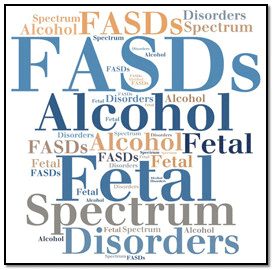Indigenous people and people in custody are identified in a new report as more vulnerable to Fetal Alcohol Spectrum Disorder than the rest of the population.
FASD is 10 to 40 times higher in certain groups than the general population according to a study published by Toronto’s Centre for Addiction and Mental Health.
FASD is a serious, lifelong, disabling condition caused by the consumption of alcohol during pregnancy.
Alcohol can readily cross the placenta, resulting in permanent damage to the brain and other organs of the developing embryo and fetus.
As a result, people with the disorder may have physical disabilities such as hearing, visual and heart problems as well as learning disability, difficulties with memory, attention, speech, social skills, coordination, difficulty absorbing information and lower than average IQ.
Others who have been pegged as vulnerable include children in foster care and people using specialized clinical services for developmental disabilities or psychiatric care.
The study’s author says the idea of safely having a glass of wine during dinner while pregnant is a myth and that there is no safe amount of alcohol consumption during pregnancy.
She adds that he fetus can be damaged at any point during pregnancy and in many cases, it happens before women know they are pregnant.
She says that pregnant women should completely abstain from alcohol during their entire pregnancy and while trying to get pregnant.
John has been in the broadcast journalism industry since the 1980s. He has been a reporter in Yellowknife since 2012 and joined CKLB in January of 2018.
John covers the crime and court beat as well as reporting on other areas including politics, business, entertainment and sports.
He won seven national community newspaper awards while he was a journalist with Northern News Services Limited (NNSL).
John worked in Ontario before coming North including stints as a TV sportscaster in Peterborough and senior news writer for CBC and CTV in downtown Toronto.







